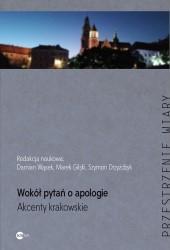Christ and religions. An outline of Christian theology of religions
Synopsis
The modern world is pluralistic in which different cultures, world views and religions meet. Such a situation often becomes the cause of many tensions and conflicts. Theology, which remains at the service of the Church’s evangelising mission, cannot remain indifferent to these problems. The article rejects both theological-religious exclusivism, depreciating the value of non-Christian religions, and theological-religious pluralism, recognising the principled equality of all religions. Defending the uniqueness of Christianity, the author argues for an open inclusivism. According to this position, non-Christian religions contain elements of goodness, truth and holiness, the fullness of which is found in Christianity. The recognition of the presence of grace and supernatural faith in religions is justified insofar as they derive from divine revelation. Granting non-Christian religions a supernatural (revelatory) genesis makes it possible to see God’s willed, foreseen and intended ways of salvation in them. However, the salvific power at their disposal is not their own power but the power of Christ himself, who is implicitly and mysteriously present in them. In this way, inclusivism appears as a theologically legitimate option, avoiding both relativism, which dilutes the identity of Christianity, and fundamentalism, which depreciates the value of other religions.



